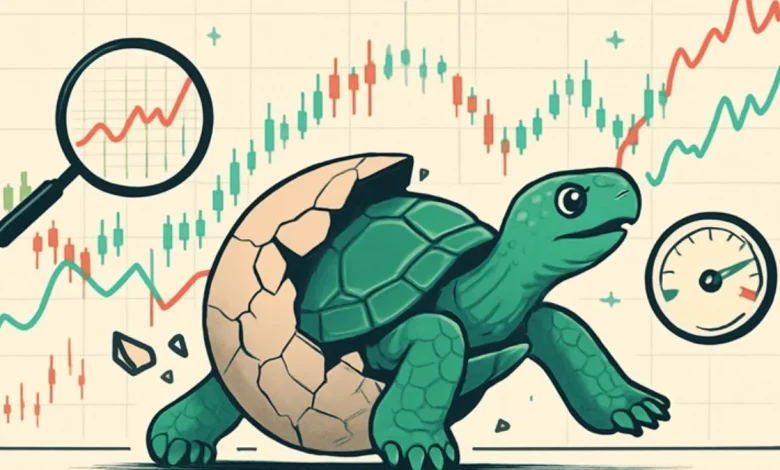The Psychology Behind the Success of Turtle Traders
Distinguishing features of turtle traders
Trading is often perceived as a skill dominated by technical knowledge, analytical abilities, and a deep understanding of market fundamentals. While these components are undeniably important, the Turtle Trading experiment of the 1980s highlighted another critical factor: psychology. The Turtles, a group of individuals trained by Richard Dennis and William Eckhardt, demonstrated that mindset, discipline, and emotional control are just as crucial as strategy in achieving long-term success.
Discipline as the Foundation of Success
The cornerstone of Turtle Trading was discipline. Each Turtle followed a clearly defined set of trading rules without deviation, relying on mechanical signals for entries and exits. This strict adherence was crucial for consistent results.
Discipline allowed traders to:
- Avoid emotional decision-making during volatile markets.
- Stick to risk management rules even after a series of losses.
- Maintain consistency across multiple trades and asset classes.
- Resist the temptation to “guess” or act on intuition.
Without discipline, even the most sophisticated strategies can fail. The Turtles’ ability to adhere strictly to rules highlights the psychological importance of consistency and patience in trading.
Overcoming Fear and Greed
Fear and greed are two of the most common psychological pitfalls in trading. Fear can cause hesitation or premature exits, while greed may lead to overleveraging or chasing trends. The Turtle Trading methodology mitigated these emotional influences by emphasizing mechanical rules and pre-defined risk exposure.
Some key psychological lessons regarding fear and greed include:
- Understanding that losses are part of the process, not a failure.
- Accepting that not every trade will be profitable.
- Setting position sizes that reduce the stress of potential losses.
- Focusing on probabilities and system reliability instead of individual outcomes.
By framing trading as a process governed by rules rather than personal instincts, the Turtles could minimize the impact of fear and greed on their performance.
The Role of Confidence in Rule-Based Trading
Confidence is one of the most important psychological traits behind the success of Turtle traders. Unlike intuitive trading, which often depends on gut feelings or emotional impulses, Turtle Trading offered a systematic and proven framework that helped participants make objective decisions. This structure gave traders the assurance that their actions were backed by data and strategy rather than instinct.
Confidence also played an important role in helping traders remain calm during inevitable drawdowns and periods of market uncertainty. By maintaining composure, they were able to follow their plan even when short-term results were discouraging. This mental resilience kept them focused on long-term performance instead of being swayed by daily fluctuations or market noise. Trusting in the system’s long-term effectiveness helped prevent emotional reactions that often lead to costly mistakes.
This kind of confidence doesn’t appear overnight. It is developed gradually through continuous practice, disciplined execution, and firsthand experience of success within a rule-based framework. As traders become more comfortable with following defined rules and witnessing consistent results, their confidence deepens. Over time, this cultivated confidence becomes one of the strongest assets a trader can possess, enabling them to stay disciplined and rational even when markets turn unpredictable.
Patience and Waiting for the Right Setups
The Turtles were trained to wait for clear setups according to their rules, often sitting on the sidelines until the market provided an ideal signal. This level of patience is difficult to achieve, especially for traders accustomed to impulsive decision-making or constant market monitoring.
Patience in trading helps to:
- Avoid entering trades prematurely.
- Reduce overtrading, which often leads to unnecessary losses.
- Maintain emotional balance by not forcing trades.
By waiting for proper signals, Turtle traders could focus their energy on executing high-quality trades rather than reacting to market fluctuations.
Handling Stress and Market Volatility
Market volatility creates stress that can disrupt decision-making. The Turtles’ mechanical approach, combined with position sizing rules and pre-determined risk limits, allowed them to remain calm during turbulent conditions. Their psychological resilience made it easier to stick to the plan and avoid rash decisions.
Key strategies for managing stress include:
- Risking only a small percentage of total capital per trade.
- Diversifying positions across multiple instruments.
- Using stop-losses to protect against unexpected price swings.
- Maintaining a clear daily routine to reduce impulsive reactions.
Stress management is essential for long-term trading success, and the Turtles’ example shows that structured systems reduce emotional strain significantly.
Learning from Losses
Even disciplined traders experience losses. What differentiates successful traders is their response to these losses. The Turtles were trained to view losses as a normal part of trading and to stick to the rules rather than making emotionally driven adjustments.
This mindset included:
- Reviewing losing trades to understand why the system produced the loss.
- Avoiding the temptation to overtrade to “make back” losses.
- Staying focused on long-term profitability rather than short-term outcomes.
By reframing losses as learning opportunities, Turtle traders maintained psychological stability and avoided spiraling into fear or frustration.
Read More: National One Cent Day: Celebrating the Legacy of America’s Smallest Coin
The Influence of Group Dynamics
Interestingly, the Turtles were trained and monitored as a group rather than as isolated individuals. This shared environment fostered a strong sense of accountability and mutual support, both of which reinforced the discipline required to follow the trading system. Watching their peers apply the same rules successfully helped build individual confidence, reduce doubt, and strengthen motivation. The sense of camaraderie made the learning process more collaborative and less intimidating, especially during periods of uncertainty or loss.
The group setting also encouraged traders to stick to their plans, even when emotions ran high. It reduced the feeling of isolation that often accompanies solo trading and provided a space for informal mentorship, feedback, and shared problem-solving. The Turtles collectively created a culture rooted in systematic and disciplined trading, where emotional decisions were replaced by structure and consistency.
The Turtle experiment demonstrates that trading success is not only about technical skill but also about cultivating the right psychological traits.
We’re now on WhatsApp. Click to join.
Like this post?
Register at One World News to never miss out on videos, celeb interviews, and best reads.








